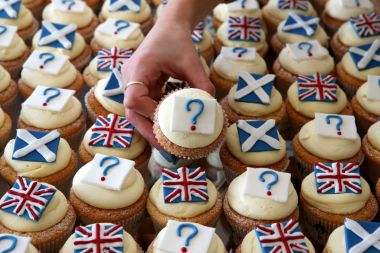Scottish independence: opposing politicians in being nice to each other shocker

The moderator of the General Assembly of the Church of Scotland has praised two leading politicians for the way they conducted themselves while discussing the country's future.
After a debate in Glasgow broadcast to churches in Aberdeen, Kirkwall and Inverness, Rt Rev John Chalmers said the tone of the exchanges between Finance Secretary John Swinney and Advocate General for Scotland Lord Wallace of Tankerness demonstrated that people can work together.
Before the debate he had said he was "disturbed" by the growing aggression as the September 18 vote approaches. He said: "I fear something ugly may be beginning to permeate the debate." He added: "Like most, I am repelled by the name-calling and rancour we have seen in recent weeks. We need to behave as though we are paving the way for working together whatever the outcome."
The Aberdeen Press and Journal reports that after the debate he has softened his position, and believes the Glasgow event showed "people from both sides can be together and share opinion in a respectful manner."
Mr Swinney said he wanted to see greater equality in education, and that the rise of food banks and the presence of nuclear missiles in Scotland suggested the need for a change in priorities.
Lord Wallace, a former deputy first minister and MSP for Orkney, said be believed economic disruption caused by independence would be felt hardest by the disadvantaged.
A group of 34 serving and retired Church of Scotland ministers, including former chief inspector of prisons Rt Rev Andrew McLellan, have publicly stated they will be voting yes, although the Church itself has not taken an official position.
A YouGov poll published in The Times on Wednesday morning found that voters were about evenly divided between those who believe there will be remaining bitterness and division after a yes vote, and those who believe there will be similar consequences if the country votes no.
Scottish residents born in England, Wales or Northern Ireland were more concerned about the aftermath than those born in Scotland.











